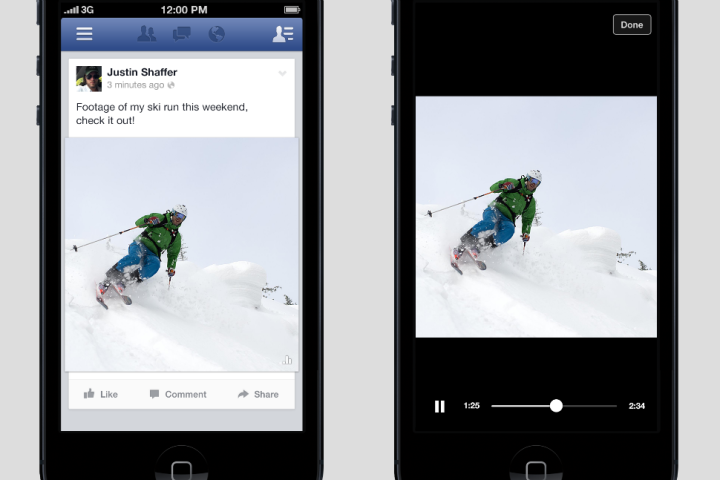
Facebook just began tests of a new way to watch videos. But if you think it’s solely to improve user experience, you’re either adorably naive or you’ve drank way too much of the Zuckerberg kool-aid. Facebook is priming the pump for the long-talked of auto-play video ads.
We already know that video ads are coming to Facebook. And the company’s recent announcement that it is testing a video auto-play feature suggests it is getting ready to unleash these ads.
“Now when you see a video in News Feed, it comes to life and starts playing. Videos initially play silently, and if you want you can tap to play with sound in full screen. Scroll past if you don’t want to watch,” Facebook explains. Videos sound will play only after you click on it, in a similar way to how Instagram video clips currently work.
This feature will appear on select mobile phones in the upcoming weeks, and at first, only videos from individuals and musicians and bands will play. This is a sly way to get us all accustomed to these auto-playing videos before they open them up to advertisers. In the FAQ section, Facebook hints at what’s to come:
“At first, this feature will be limited to videos posted by individuals, musicians, and bands. We’re doing this to make sure we create the best possible experience. Over time, we’ll continue to explore how to bring this to marketers in the future.”
Facebook has a lot of lofty goals in the hopper for the future — connecting the world’s five billion inhabitants without internet access, for starters, and then mapping the known world with Graph Search — so this new feature, which will open up the potential for a whole new stream of revenue from marketers who want to showcase their video ads on the website — could provide the company with additional funds with which to continue its wildly ambitious plans.
Editors' Recommendations
- How to download a video from Facebook
- Facebook Messenger finally starts testing end-to-end encryption for all chats
- Facebook to ban ads that claim election win before official announcement
- Targeted Facebook ads are about to lose a big audience: iPhone owners
- Facebook is adding shopping to your mobile app

